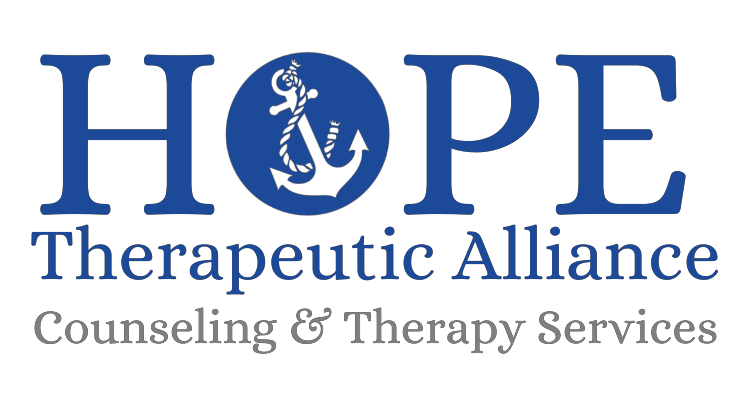San Antonio Trauma Therapist Explains: What is EMDR Therapy?
EMDR is a Trauma Therapy Approach that Treats Emotional Pain at the Source
Natural Stress Responses Prepare Us for Danger
Things happen every day that could cause us to have negative thoughts and feelings. Our senses are the inputs that provide information to our brains. If you’ve ever hit your toe so hard you suddenly find yourself in excruciating pain, you may have experienced the human body’s instinctual fight, flight, or freeze stress response.
When we stub our toe, we can trigger an explosion of anger, fear, anxiety, and pain all at the same time, in a split second. After a minute or two, the pain subsides and we catch our breath. Our instincts retreat as our brains analyze the situation and determines it’s safe. We might have a flashback of the pain later on in the day, but we feel better and we go on with our day.
Who is a Good Candidates for EMDR?
EMDR can help you overcome Childhood Trauma, PTSD, Anxiety, Trauma, and Depression naturally – without drugs or medication. This notable therapy stimulates how the brain naturally processes memories, and addresses your Childhood Trauma at its root cause – giving you lasting, fast relief from your emotional distress.
Childhood Trauma
Stop the Self-blame, Guilt and Shame from these Experiences
Childhood trauma can affect your brain development and impede how your brain processes memories. Demoralizing emotions and negative self-beliefs are attached to these memories, which are repeatedly triggered by stimuli such as images, people, and sensations.
EMDR works to target these memories and works to delink the sensations and emotions that have been connected to the memory at the time of the incident(s).
PTSD and Trauma
Free Yourself from Your Inner Fears, Doubt, Shame, & Guilt
When you experience trauma, whether from personal tragedy, accident, loss, abuse or conflict, your brain freezes and stops processing memories normally. When these memories are triggered, they bring back the pain, anger, fear, and unwanted emotions.
EMDR specializes in the treatment of PTSD and Trauma to help you move past traumatic memories and demoralizing emotions that are holding you hostage.
Anxiety
Feel Calmer & More Relaxed Often After the First Session
Living with Anxiety is exhausting, especially if you appear “normal” - or even high-functioning - on the outside. You feel alone, afraid, trapped in an internal torcher chamber. Afraid of what could happen next.
EMDR offers specialized treatment protocols for Anxiety and Phobias to help you address fears that are holding you hostage.
Grief
Free Yourself from the Overwhelming Pain from the Loss
If you are living with grief from losing a loved one, a cherished dream, relationship loss, ill health, or personal tragedy, the pain can be overwhelming. You feel broken, isolated, unable to cope. Like life can never be normal again.
EMDR utilizes specific treatment protocols for Grief and Trauma to help you overcome the pain, sadness, or guilt from loss.
Depression
Feel like YOU again
If you are living in permanent numbness, convinced that things will never get better, and wondering if life is worth it, let Virtual EMDR help you overcome your Depression
EMDR incorporates a specialized treatment process for Depression to help you regain hope and find joy in life again. This remarkable therapy has helped thousands of people address Depression to attain relief from emotional pain.
How Does EMDR Work?
Change Pathways in Your Brain
Pathways are built consciously when we work to form good habits like exercising or drinking enough water.
Unwanted behavior can be caused by a pathway formed from a disturbing incident in our past. When we cannot overcome negative reactions on our own, a licensed, certified EMDR therapist can assist in re-setting responses to form new pathways.
Trauma Creates Maladaptive Memories
When trauma on a much bigger scale happens like a serious accident, violence, or abuse, our mental recovery can be challenging. There is no telling what story our own memory processing system will extract from the event and move into memory recesses.
Our individual experiences and memories shape our core beliefs. We are especially vulnerable when we are young and experience fight or flight for the first time. Negative, violent, and stressful life events can injure our thought process and leave mental scars.
Trauma situations, car crash, house fire, ambulance, broken bones Our brains need time to grieve and mentally heal from a traumatic event. During the healing process, sometimes trauma can cause a maladaptively stored memory, as in PTSD.
Maladaptive Memories Can Be Corrected
Eye Movement Desensitization and Resolution therapy is a mental health treatment by a licensed therapist that uses bilateral stimulation, similar to eye movement during REM sleep, to access the sub-conscious and take stress responses out of memories.
What Can I Expect from an EMDR Session?
An EMDR Session is Like Physical Therapy for the Mind
During an EMDR session, we will work together and do bilateral movement exercises, while you simultaneously focus on thoughts and feelings around a target memory. More information can be found here.
EMDR Compared to Other Psychotherapies
EMDR is an Evidence-Based Treatment
EMDR therapy is recognized as an effective form of treatment for trauma and other disturbing experiences by these organizations:






